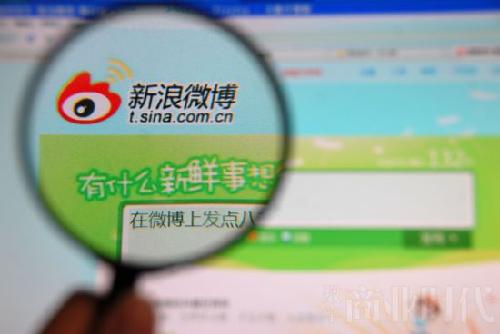Chinese micro blogs a double-edged sword
- By Jonathan Calkins
 0 Comment(s)
0 Comment(s) Print
Print E-mail China.org.cn, April 12, 2012
E-mail China.org.cn, April 12, 2012
Over the past decade, China has undergone a telecommunications and information technology transformation the likes of which the world has never seen.

According to Internet World Stats, a website that monitors and publishes Internet market research data, the number of Chinese Internet users has grown from 22 million around the turn of the century to a staggering 513 million in December 2011. In addition, there are now as many Chinese mobile phone users as the combined populations of the U.S. and Europe.
Kaiser Kuo, director of international communications at Baidu, believes Internet access has become a basic fact of life for Chinese citizens. He said: "China has very much embraced information communication technology. It is something the Chinese government has taken very, very seriously."
Social media differs from traditional forms of media because of its user-generated content. It allows users to connect with other users and create an enormous amount of content on a daily basis. Popular micro blogging platforms such as Sina Weibo and Tencent Weibo have revolutionized Chinese culture and, according to Kuo, define it.
"There has never been a time in Chinese history where there has been a comparably large impactful public sphere. It is now driving, in many ways, the entire national dialogue."
Despite implementing strict monitoring measures, the government has facilitated the growth of the social media population – now in the hundreds of millions and largely controlled by private citizens – with improvements in network capacity and investments into other online infrastructure. Now, social media services such as Weibo are also used by government officials to directly connect with the public.
In China, people use Weibo to share jokes, images and videos, as well as to discuss current events and popular trends. A noteworthy difference between Chinese and Western micro blogs is the amount of information conveyed in a single 140 character post.
In the English language, 140 characters limit users to writing a single concise sentence or a few abbreviated phrases. In Chinese, 140 characters translate into an entire paragraph. This difference allows Chinese micro blog users to rapidly share large amounts of information at speeds faster than on similar services in the West, such as Twitter.
While Chinese officials welcome the economic gains brought about by the Internet, they are also troubled by social media, especially micro blogs, which help to spread rumors and misinformation. Chinese authorities are firmly opposed to the harmful effects of fabricated hearsay, and are continually upgrading their monitoring and content supervision capabilities to ensure that Internet users have access to accurate and useful information.
A recent article published by Xinhua, China’s largest news agency, argued that freedom of speech does not protect unsubstantiated rumors. It said: "Fabricating information is different from spreading unconfirmed information, as the two concepts are driven by different intentions. How could freedom of speech be defended if we turn our backs on slander? Can we tolerate fake or inferior products with the aim of promoting the free market?"
China aims to continue balancing freedom of thought against the public interest, and firm actions are taken when rumors damage these interests.






Go to Forum >>0 Comment(s)